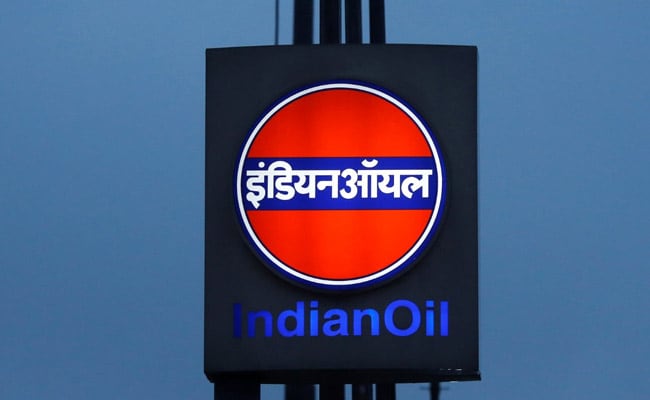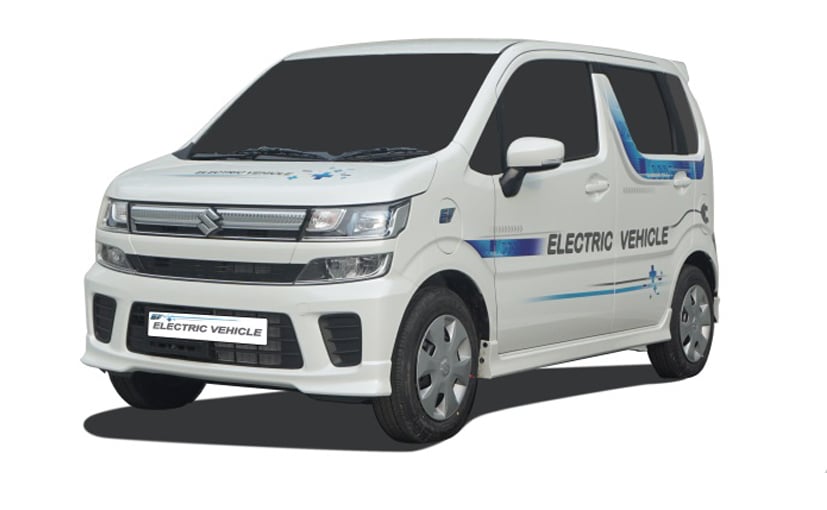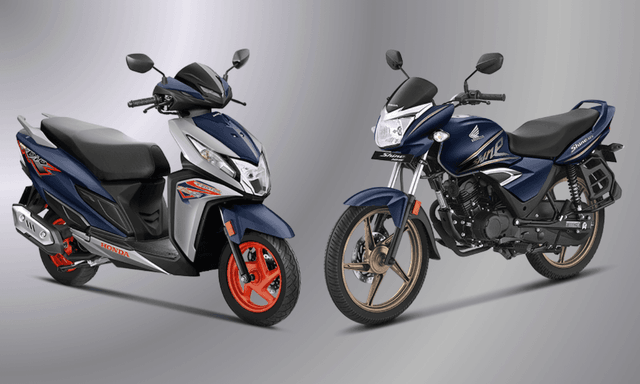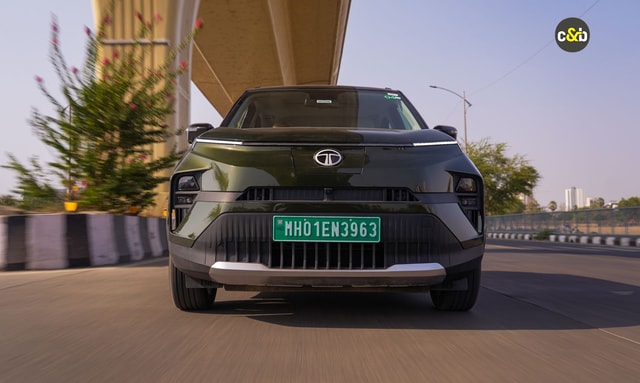IndianOil And Israel's Phinergy Form JV To Build Aluminium-Air Battery Systems For EVs

- Aluminium-air battery technology will not need electricity for carging
- The new JV has signed LOI with Maruti Suzuki and Ashok Leyland
- The new tech is more efficient & offers a longer range compared to Li-Ion
Indian Oil Corporation Limited (IOCL) and Phinergy, an Israeli start-up company has recently formed a joint venture (JV) to build Aluminum-Air systems in India. Phinergy is a company that specialises in hybrid lithium-ion and aluminium-air or zinc-air battery systems and the Government of India believes that this JV will boost the country's aspirations with regards to electric mobility. The battery system generates electricity from metals (aluminium and zinc) using oxygen from ambient air, which means there will be no need to plug in the vehicle to charge the battery. Plus as the system uses only a water-based electrolyte it's eco-friendlier than a conventional Lithium-Ion battery system and still offers more than twice the battery range.

Dharmendra Pradhan, Union Minister of Petroleum and Natural Gas at the signing of the deal
Interestingly, the new JV has already signed a Letter of Intent (LOI) with Ashok Leyland and Maruti Suzuki India to test the physical application of the technology in India. As part of the collaboration, Ashok Leyland and Maruti Suzuki will integrate Phinergy's technology in electric buses and electric passenger vehicles, respectively. The collaboration includes the development of prototypes, field trials and adaptation of the aluminium-air battery to the massive Indian market. These will be in addition to Phinergy's existing partnership with Mahindra Electric, which is working on a prototype for an electric rickshaw using an aluminium-air battery.
Also Read: ABB and Amazon Web Services Steer Fleets To An All-electric Future
Talking about the deal, S M Vaidya, Chairman, IndianOil said, "Al-Air technology will help us overcome most of the current challenges for e-Vehicles and address most of the potential customers' pain-points, including range anxiety, higher cost of purchase, and safety issues. This technology will also boost India's existing aluminium industry and help the nation become Self-reliant in the energy field and promote the 'Make in India' drive."
Also Read: Mahindra Board Approves Consolidation Of EV Subsidiary Into The Parent Company

Maruti Suzuki will integrate Phinergy's technology in electric passenger vehicles
As for the technology itself, it is fairly straightforward. The oxygen in the air that is sucked in into the Aluminium-Air cells in the battery pack reacts with the water and metal to generate electricity. It also has a high energy density, which is the ability to store a high amount of energy for a given mass/volume, and thus the system offers a much higher battery range compared to a conventional battery. To give you a perspective, an Aluminium-Air battery has an energy density of 8 kWh per kg as compared to the 1-1.5 kWh per kg capacity of Lithium and other such sources. However, the only catch here is the fact that AI-Air technology has low power density, and peak load operations and starting of vehicles require higher power density. So, a small size Li-ion battery would be required to boost the power.
What makes this technology an eco-friendlier option are three factors - firstly once the aluminium erodes, the anodes or aluminium plates can be replaced and fresh electrolyte can be added, thus the battery pack can be reused. As for the customer they just need to swap the used battery for a new one. Secondly, the Aluminium Hydroxide solution generated in the used battery can be sent to a recycling unit to get 100 per cent aluminium back, which means recycling used Aluminum will help India in becoming self-sustain for energy requirements. And finally, because AI-Air batteries require no electricity, they don't need to be charged, which means less consumption of electricity.
Latest News
 car&bike Team | Feb 6, 2026Indian Motorcycle Parts Ways With PolarisAs America’s first motorcycle brand prepares to celebrate its 125th anniversary, Indian Motorcycle has parted ways with former parent Polaris to become an independent company.1 min read
car&bike Team | Feb 6, 2026Indian Motorcycle Parts Ways With PolarisAs America’s first motorcycle brand prepares to celebrate its 125th anniversary, Indian Motorcycle has parted ways with former parent Polaris to become an independent company.1 min read car&bike Team | Feb 6, 2026BMW F 450 GS Based Sportbike Spotted On TestThe upcoming supersport machine is expected share the same parallel-twin engine with the upcoming BMW F 450 GS.1 min read
car&bike Team | Feb 6, 2026BMW F 450 GS Based Sportbike Spotted On TestThe upcoming supersport machine is expected share the same parallel-twin engine with the upcoming BMW F 450 GS.1 min read car&bike Team | Feb 6, 2026Tata Sierra Bookings Cross 1 Lakh Mark; Production Ramped UpWith bookings now in six-digit territory, Tata Motors is moving ahead with a phased ramp-up in production, while working through supplier-related constraints.1 min read
car&bike Team | Feb 6, 2026Tata Sierra Bookings Cross 1 Lakh Mark; Production Ramped UpWith bookings now in six-digit territory, Tata Motors is moving ahead with a phased ramp-up in production, while working through supplier-related constraints.1 min read car&bike Team | Feb 6, 2026Mahindra To Set Up Its Biggest Automobile Plant In Nagpur; Production To Begin In 2028The new facility will support next-generation platforms from the brand and will be capable of manufacturing multiple powertrains including ICE, EV & future technologies1 min read
car&bike Team | Feb 6, 2026Mahindra To Set Up Its Biggest Automobile Plant In Nagpur; Production To Begin In 2028The new facility will support next-generation platforms from the brand and will be capable of manufacturing multiple powertrains including ICE, EV & future technologies1 min read Jaiveer Mehra | Feb 5, 2026Honda Dio 125 X-Edition, Shine 125 Limited Edition LaunchedBoth special editions get a variant-specific colour scheme and graphics.1 min read
Jaiveer Mehra | Feb 5, 2026Honda Dio 125 X-Edition, Shine 125 Limited Edition LaunchedBoth special editions get a variant-specific colour scheme and graphics.1 min read Seshan Vijayraghvan | Feb 5, 2026Tata Punch EV Facelift To Be Launched On February 20The electric version of Tata’s SUV-esque hatchback will be launched on February 20, 2026, and, like the petrol-powered version, it will receive a range of visual and feature upgrades.2 mins read
Seshan Vijayraghvan | Feb 5, 2026Tata Punch EV Facelift To Be Launched On February 20The electric version of Tata’s SUV-esque hatchback will be launched on February 20, 2026, and, like the petrol-powered version, it will receive a range of visual and feature upgrades.2 mins read
 Bilal Firfiray | Feb 4, 2026Volkswagen Tayron R-Line Review: Sensible Flagship For IndiaVolkswagen has introduced a made-in-India flagship SUV that offers space, comfort, performance, and German driving finesse in a practical three-row package. But is the Tayron R-Line good enough?6 mins read
Bilal Firfiray | Feb 4, 2026Volkswagen Tayron R-Line Review: Sensible Flagship For IndiaVolkswagen has introduced a made-in-India flagship SUV that offers space, comfort, performance, and German driving finesse in a practical three-row package. But is the Tayron R-Line good enough?6 mins read Preetam Bora | Feb 2, 2026TVS NTorq 150 Road Test Review: Bigger, Better & More Efficient!We test the new TVS NTorq 150 out in the real world to get a sense of what it offers in terms of performance, dynamics and fuel economy.7 mins read
Preetam Bora | Feb 2, 2026TVS NTorq 150 Road Test Review: Bigger, Better & More Efficient!We test the new TVS NTorq 150 out in the real world to get a sense of what it offers in terms of performance, dynamics and fuel economy.7 mins read Bilal Firfiray | Jan 21, 2026Tata Punch Facelift Review: New Turbo Engine; Same Old SoulWith the update, the Tata Punch facelift retains its character of being a healthy runabout, which is perfect for Indian roads. But have these changes made it any better?7 mins read
Bilal Firfiray | Jan 21, 2026Tata Punch Facelift Review: New Turbo Engine; Same Old SoulWith the update, the Tata Punch facelift retains its character of being a healthy runabout, which is perfect for Indian roads. But have these changes made it any better?7 mins read Amaan Ahmed | Jan 17, 2026Bajaj Chetak C25 First Ride Review: Basic, Likeable E-Scooter For First-Time RidersThe Chetak C25, in quite a few ways, is poles apart from the larger and more powerful 30 and 35 Series models, but in its mannerisms, it is very much a Chetak.8 mins read
Amaan Ahmed | Jan 17, 2026Bajaj Chetak C25 First Ride Review: Basic, Likeable E-Scooter For First-Time RidersThe Chetak C25, in quite a few ways, is poles apart from the larger and more powerful 30 and 35 Series models, but in its mannerisms, it is very much a Chetak.8 mins read Bilal Firfiray | Jan 9, 2026Toyota Urban Cruiser Hyryder: 10,000 km Long-Term ReviewAfter spending over three months and 10,000 km with the Toyota Urban Cruiser Hyryder Hybrid, we were impressed by its real-world mileage, seamless hybrid, practical comfort, and Toyota reliability. Is it the best C-SUV then?5 mins read
Bilal Firfiray | Jan 9, 2026Toyota Urban Cruiser Hyryder: 10,000 km Long-Term ReviewAfter spending over three months and 10,000 km with the Toyota Urban Cruiser Hyryder Hybrid, we were impressed by its real-world mileage, seamless hybrid, practical comfort, and Toyota reliability. Is it the best C-SUV then?5 mins read
































































































































